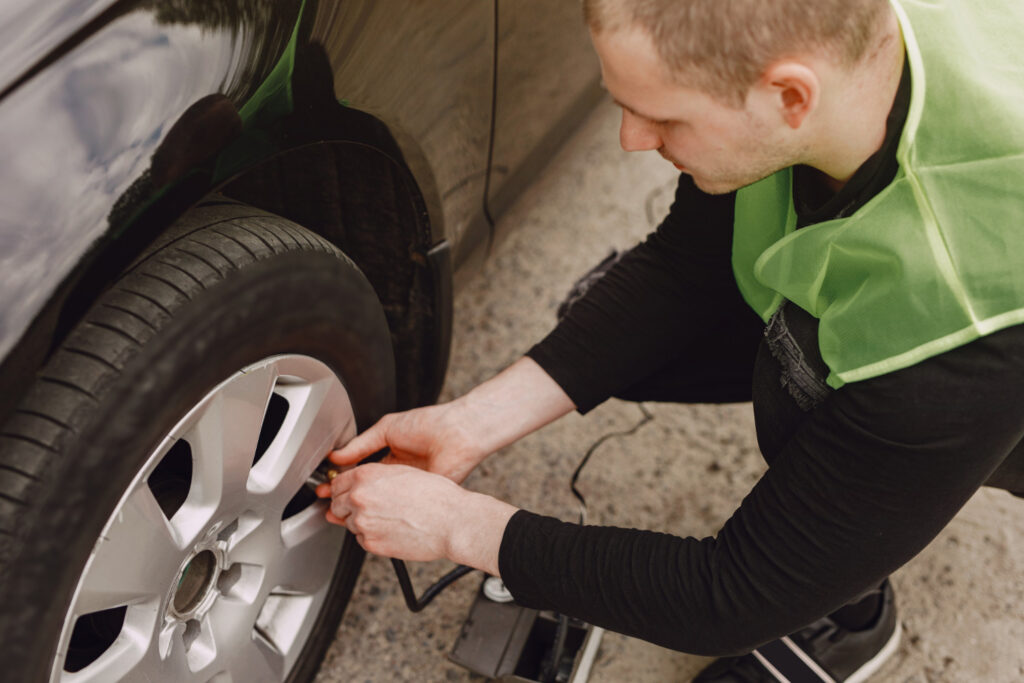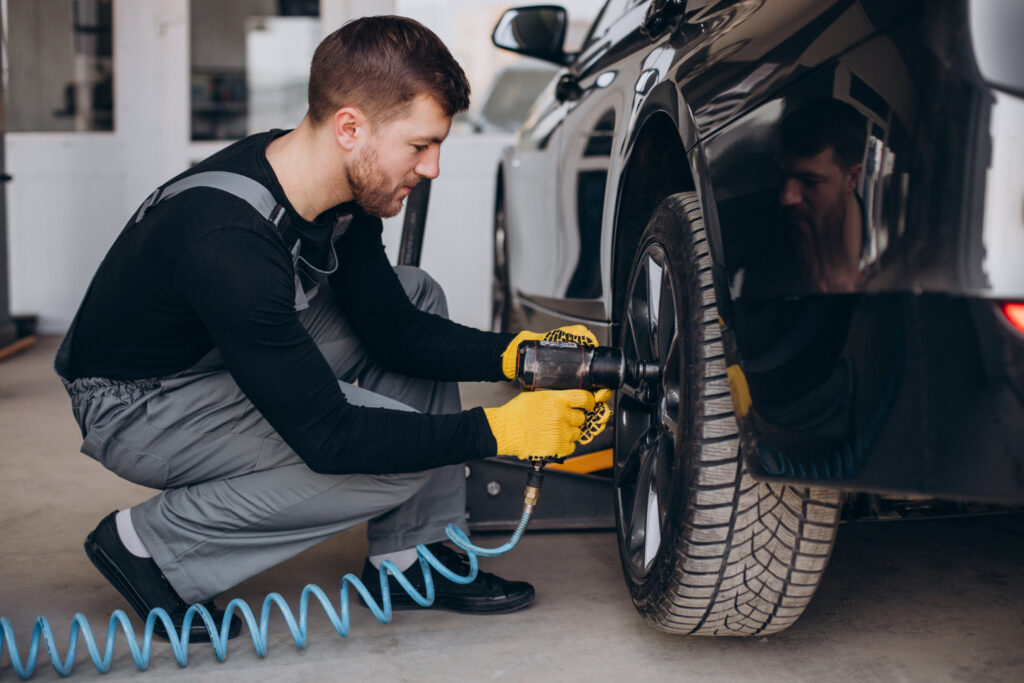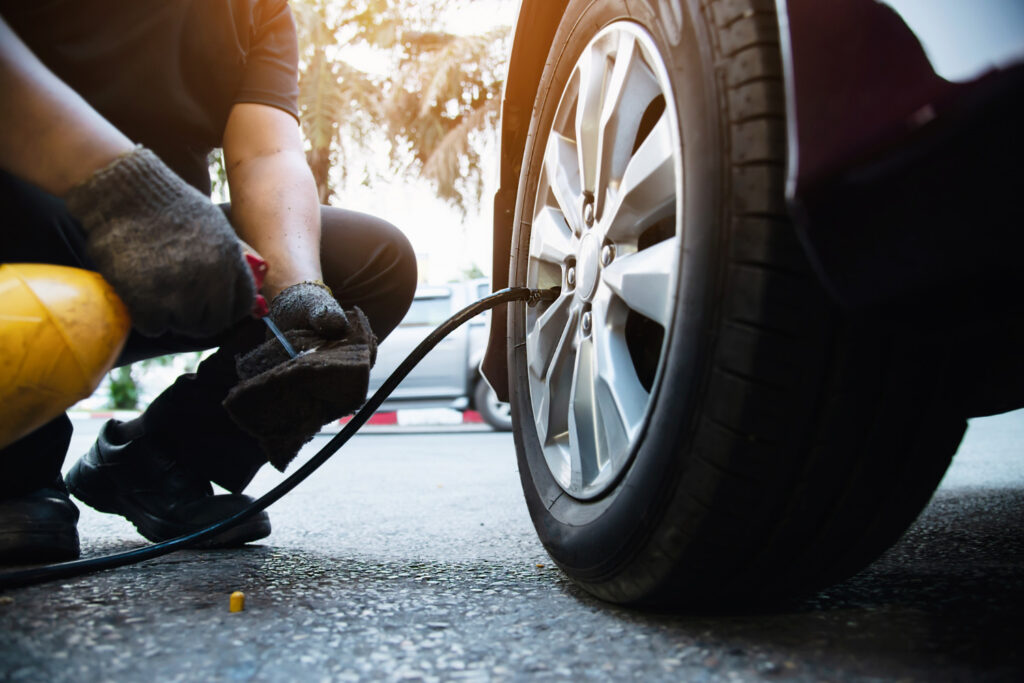When it comes to maximizing fuel efficiency, most drivers think about their driving habits or the type of gasoline they use. But did you know that something as simple as your tire pressure can have a significant impact on how far your car goes on a gallon? That’s right—proper Tire Inflation is often an overlooked factor in the quest for better mileage and lower fuel costs. In this blog post, we’ll dive into the surprising connection between tire pressure and fuel economy, uncovering tips to keep your tires in top shape while saving you money at the pump. Buckle up as we explore how making one small change can lead to big savings!
Introduction
Did you know that something as simple as Tire Inflation can significantly influence your vehicle’s fuel efficiency? It might seem like a minor detail, but the air pressure in your tires plays a crucial role in how efficiently your car runs. Many drivers overlook this essential maintenance task, unaware of the potential impact on their wallets and the environment. By understanding the connection between Tire Inflation and fuel consumption, you can save money at the pump while contributing to better gas mileage. Let’s dive with Bleck Tires into why keeping those tires properly inflated is not just important for safety, but also for maximizing fuel efficiency.

Why Is Tire Inflation Important?
Proper Tire Inflation is crucial for vehicle safety and performance. Under-inflated tires can lead to decreased handling and longer stopping distances, increasing the risk of accidents. Maintaining the right pressure ensures that your car responds appropriately when you need it most. Moreover, correctly inflated tires contribute to a smoother ride. They absorb bumps and irregularities in the road better than their under-inflated counterparts. This not only enhances comfort but also protects your suspension system from unnecessary strain and saves you from calling mobile tire services in DFW, TX for your help.
Tire Inflation also plays a role in extending tire life. When tires are at optimal pressure, they wear evenly, reducing the likelihood of premature replacement. This simple maintenance task can save you time and money down the line. Lastly, having properly inflated tires supports environmental sustainability by decreasing fuel consumption through improved efficiency. A small adjustment can have significant implications for both your wallet and our planet’s health.
How Does Tire Inflation Impact Fuel Efficiency?
Tire Inflation plays a critical role in how efficiently your vehicle uses fuel. When tires are properly inflated, they maintain their shape and provide optimal contact with the road. This enhances traction and handling. Under-inflated tires create more rolling resistance. As a result, your engine has to work harder to move the car forward. This extra effort translates into increased fuel consumption.
Conversely, Bleck Tires warns that over-inflated tires can also be problematic. They may lead to reduced contact with the road surface, which compromises grip and safety. Striking the right balance is essential for achieving maximum efficiency. Regularly checking tire pressure ensures that you’re not wasting money at the pump while also prolonging tire life. Keeping an eye on inflation levels forms part of responsible vehicle maintenance that pays off in both performance and savings on fuel costs.
The Relationship Between Tire Pressure and Rolling Resistance
Tire pressure plays a critical role in determining rolling resistance, which significantly affects fuel efficiency. When tires are properly inflated, they create less friction with the road. This means your vehicle requires less energy to maintain speed.
Under-inflated tires have an increased contact area with the road surface, leading to higher rolling resistance. The result? Your engine works harder and consumes more fuel. Conversely, over-inflation can also be problematic. While it reduces rolling resistance initially, it may lead to uneven tire wear and reduced grip on surfaces.
The key lies in maintaining that sweet spot of optimal tire pressure. Regular checks with our mobile tire services in DFW, TX at Bleck Tires ensure that you’re not just prolonging your tire life but also saving money at the pump while promoting safety on the roads.
Tips For Maintaining Proper Tire Inflation
Maintaining proper Tire Inflation is simpler than you might think. Start by checking the pressure at least once a month. Use a reliable gauge for accuracy. Always measure when tires are cold, ideally before driving. This ensures you get an accurate reading, as heat can increase pressure.
Don’t forget to inspect your tires visually for any signs of wear or damage. Look out for uneven tread patterns which could signal improper inflation. Keep an eye on temperature changes too; fluctuating weather can affect tire pressure significantly. Adjust accordingly during seasonal shifts.
Lastly, invest in a good air compressor for home use. It makes quick adjustments easy and saves time at gas stations. Regular attention to these details will keep your tires performing their best.

Studies On the Impact of Tire Inflation On Fuel Efficiency
Numerous studies have spotlighted the connection between Tire Inflation and fuel efficiency. A notable example comes from the U.S. Department of Energy, which found that under-inflated tires can reduce fuel economy by up to 3%. This is a significant loss for drivers aiming to save on gas.
Another real-world case involved a fleet of delivery trucks. When their tires were inflated to optimal levels, they saw an impressive 10% improvement in fuel consumption over several months. This not only reduced costs but also minimized their carbon footprint.
Additionally, research published in the Journal of Transport Research indicated that maintaining proper tire pressure could lead to savings of around $1 billion annually across all vehicles in the United States alone. These examples illustrate just how impactful correct Tire Inflation can be on both individual wallets and broader environmental efforts.
Potential Cost Savings From Proper Tire Inflation
Proper Tire Inflation can lead to significant cost savings for vehicle owners. When tires are inflated to the recommended pressure, vehicles operate more efficiently. This efficiency translates into better fuel economy. Every pound per square inch (PSI) below optimal pressure can decrease fuel efficiency by about 0.2%. Over time, this small percentage adds up to noticeable extra costs at the pump.
Regularly checking and maintaining tire pressure not only conserves fuel but also extends tire lifespan. Under-inflated tires wear out faster, leading to premature replacements that strain your wallet further.
Additionally, proper inflation reduces stress on other vehicle components like brakes and suspension systems. This minimizes repair expenses down the line. In essence, investing just a few minutes each month in tire maintenance can yield substantial savings over time while contributing positively to overall road safety.
Alternative Methods For Improving Fuel Efficiency Through Tires
Exploring alternative methods for enhancing fuel efficiency through tires can lead to significant savings and performance improvements. One popular option is low rolling resistance tires. These specially designed tires minimize energy loss as they roll, effectively increasing your vehicle’s mileage. Manufacturers achieve this by using advanced materials and tread designs that reduce friction with the road surface. The result? A smoother ride that doesn’t compromise safety or grip.
Another approach involves maintaining optimal alignment and balance of your wheels from professional mobile tire services in DFW, TX. Misaligned wheels create additional drag, which can hinder fuel economy. Regularly checking these factors ensures you get the best out of your tire choice.
Additionally, consider inflating tires beyond traditional recommendations—within safe limits—to further decrease rolling resistance. This strategy may enhance gas mileage while ensuring comfort remains intact on the road.

Final Thoughts On The Importance Of Tire Inflation For Fuel Efficiency
Tire Inflation plays a critical role in fuel efficiency. Properly inflated tires can significantly reduce the amount of fuel your vehicle consumes, translating into both cost savings and environmental benefits. When tires are under-inflated, they create more rolling resistance, which forces your engine to work harder and burn more fuel.
Maintaining optimal tire pressure is not just about keeping your car running smoothly; it’s also an essential step toward maximizing your investment in fuel. Regular checks can ensure that you stay within the recommended range for tire pressure specific to your vehicle. Real-world studies have consistently shown that even minor adjustments to Tire Inflation can lead to noticeable improvements in gas mileage. For instance, a study by the U.S. Department of Energy found that maintaining proper tire pressure could improve fuel economy by 3% on average.
The financial aspect cannot be ignored either. Correctly inflated tires contribute directly to lower operating costs over time due to decreased fuel consumption and extended tread life. This simple yet effective maintenance task pays off at the pump while prolonging the lifespan of your tires. Additionally, exploring alternative options like low rolling resistance tires can further enhance efficiency without compromising safety or performance. Ultimately, being proactive about Tire Inflation is an easy way for drivers to take control of their vehicle’s performance and overall sustainability efforts on the road. Engaging with this often-overlooked aspect of car maintenance leads not only to better driving experiences but also contributes positively towards reducing our collective carbon footprint.

